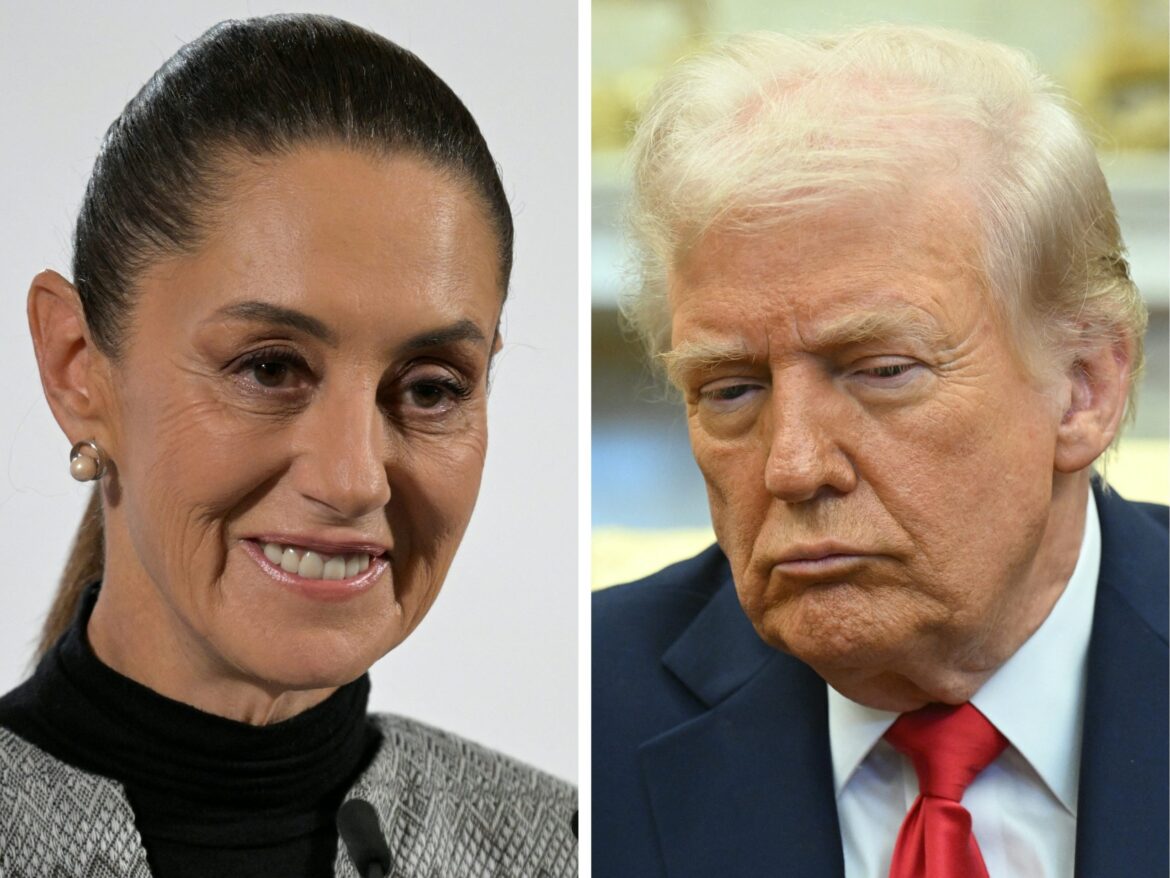Former U.S. President Donald Trump has criticized Mexican President Claudia Sheinbaum after she rejected his proposal to deploy American troops within Mexico to aid in the fight against drug cartels. The disagreement stems from a tense phone call last month, during which Trump urged for a greater U.S. military role in combating criminal organizations operating in Mexico. President Sheinbaum responded firmly by affirming Mexico’s sovereignty and declining U.S. military involvement, highlighting the ongoing complexities in U.S.-Mexico relations over border security and anti-cartel efforts.
In a recent development highlighting ongoing tensions between the United States and Mexico regarding approaches to combat drug trafficking, former President Donald Trump publicly criticized Mexican President Claudia Sheinbaum. This escalated following a phone discussion last month where Trump advocated for the deployment of U.S. military forces to assist Mexico in tackling drug cartels. Trump argued that increased American military presence would enhance the effectiveness of anti-cartel operations.
President Sheinbaum, in contrast, firmly rejected the proposal, emphasizing Mexico’s sovereign right to manage its internal security without foreign military intervention. Sheinbaum’s response underscores Mexico’s longstanding position on national sovereignty and the sensitive nature of bilateral security cooperation. Mexican officials have consistently maintained that security challenges, including cartel violence, must be addressed through domestic law enforcement and judicial reforms rather than foreign military involvement.
Context of U.S.-Mexico Relations on Security
The suggestion of deploying U.S. troops on Mexican soil revisits a contentious issue complicated by historical and political factors. While both nations share a commitment to combatting transnational criminal organizations, there are divergent views on the methods and degree of cooperation. The U.S. has provided various forms of support, such as intelligence sharing and training programs, but direct military involvement remains highly sensitive and largely opposed by Mexican leadership and public opinion.
Impact on Bilateral Cooperation
This recent exchange between Trump and Sheinbaum could influence broader diplomatic relations between the two countries. The public nature of Trump’s criticism might complicate ongoing negotiations related to border security, immigration, and drug trafficking. Experts suggest that such disagreements highlight the need for diplomatic dialogue grounded in mutual respect and collaboration.
Drug Cartel Challenges
Mexico continues to face significant challenges posed by powerful drug cartels that engage in violent conflict and illegal cross-border activities. The cartels not only threaten public safety and governance within Mexico but also contribute substantially to the flow of illicit drugs into the United States. Both governments recognize the importance of addressing these issues but have yet to reach a consensus on the most effective strategies.
Looking Ahead
- Mexico is expected to maintain its stance against foreign military presence while seeking to strengthen internal security mechanisms.
- The United States may continue offering non-military support such as funding, training, and intelligence to combat drug trafficking.
- Ongoing dialogue will be critical to managing differences and enhancing cooperation against drug cartels.
It remains to be seen how this disagreement will evolve and whether it will prompt new approaches to U.S.-Mexico collaboration on security and border issues. Both nations face complex challenges that necessitate respectful and strategic partnerships.
In conclusion, the disagreement between former U.S. President Donald Trump and Mexican President Claudia Sheinbaum over the deployment of American troops in Mexico underscores the delicate balance of sovereignty and cooperation in bilateral security efforts. While Mexico asserts its right to handle internal security independently, the United States remains committed to supporting anti-cartel initiatives through non-military means. Moving forward, continued diplomatic engagement based on mutual respect will be essential to address the shared challenges posed by drug cartels and to foster effective collaboration between the two countries.

